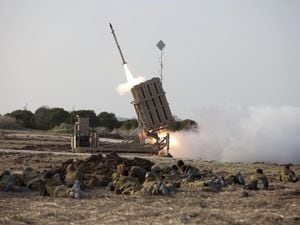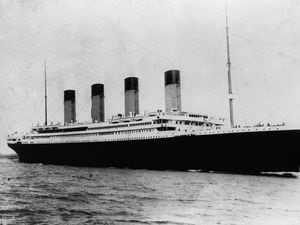Peter Rhodes on wars without proof, an unexpected benefactor and how horses became gee-gees
Just because you want something to be true, that doesn't make it true.

SALVETE, Plebs (ITV). There is a long and depressing TV custom of funny, original ideas being drawn out into series after series until all the humour is wrung out of them. So far, Plebs has escaped the process and this fourth series is as sharp as ever. But that doesn't mean a fifth or sixth series is necessary or desirable. Fawlty Towers struck TV gold with just 12 episodes in two series. Red Dwarf, on the other hand, staggers on through 12 series. It has become the tragic sci-fi equivalent of Last of the Summer Wine which stretched one joke through 31 series and 295 episodes straddling two millennia. It seemed longer, didn't it? There are times in TV comedy when less is more.
WHICH reminds me. On our recent trip to Chester we came across some old houses in Abbey Street which had been restored, according to the plaque, "with the help of a substantial legacy from Mrs Norah Batty." Not the same one, apparently.
WE were in Chester doing some family-history research into Henry Gee, known as the Reforming Mayor of Chester. In the 1530s, horrified at the deaths and injuries caused by the mass football games of the age, Gee replaced Chester's annual bloodbath, the Goteddsday match, with horse racing. The idea took off, Chester became a great racing city and Mayor Gee's name became synonymous with the sport giving us, according to local legend, the term "gee-gee."
MEANWHILE, back in the real world of smart bombs and bunker-buster missiles, would you rather go to war against President Putin, who may (or may not) have used nerve agent in Salisbury, or against President Assad who may (or may not) have used poison gas in Douma? Or do you simply long for the good old days when no sane government would dream of going to war without a 100 per cent, rock-solid proof that a (Latin-phrase alert) causus belli - a cause of war - actually existed?
IN simpler times, there was no debate, no ifs or maybes before the Dreadnoughts were unleashed. No-one had any doubt that the Kaiser had violated Belgium in 1914, or that Hitler had invaded Poland in 1939 or the Argies had occupied the Falklands in 1982. In today's world, the scientists sift through the evidence, the politicians announce their opinions and we drift towards wars based on probabilities. Lest we forget, the loudest applause in Any Questions (Radio 4) at the weekend was for the journalist Peter Hitchens who pointed out that, before the US/UK attack was launched, there were no reliable first-hand accounts of the alleged gas attack in Douma. Thought for the day: Just because you want something to be true, that doesn't make it true.
PERILS of predictive texting. On the issue of air pollution, one aggrieved texter accused the Government: "They tell us to but Deidre, then tell us not to." In this case, "but Deidre" should, of course, be "buy diesel."





